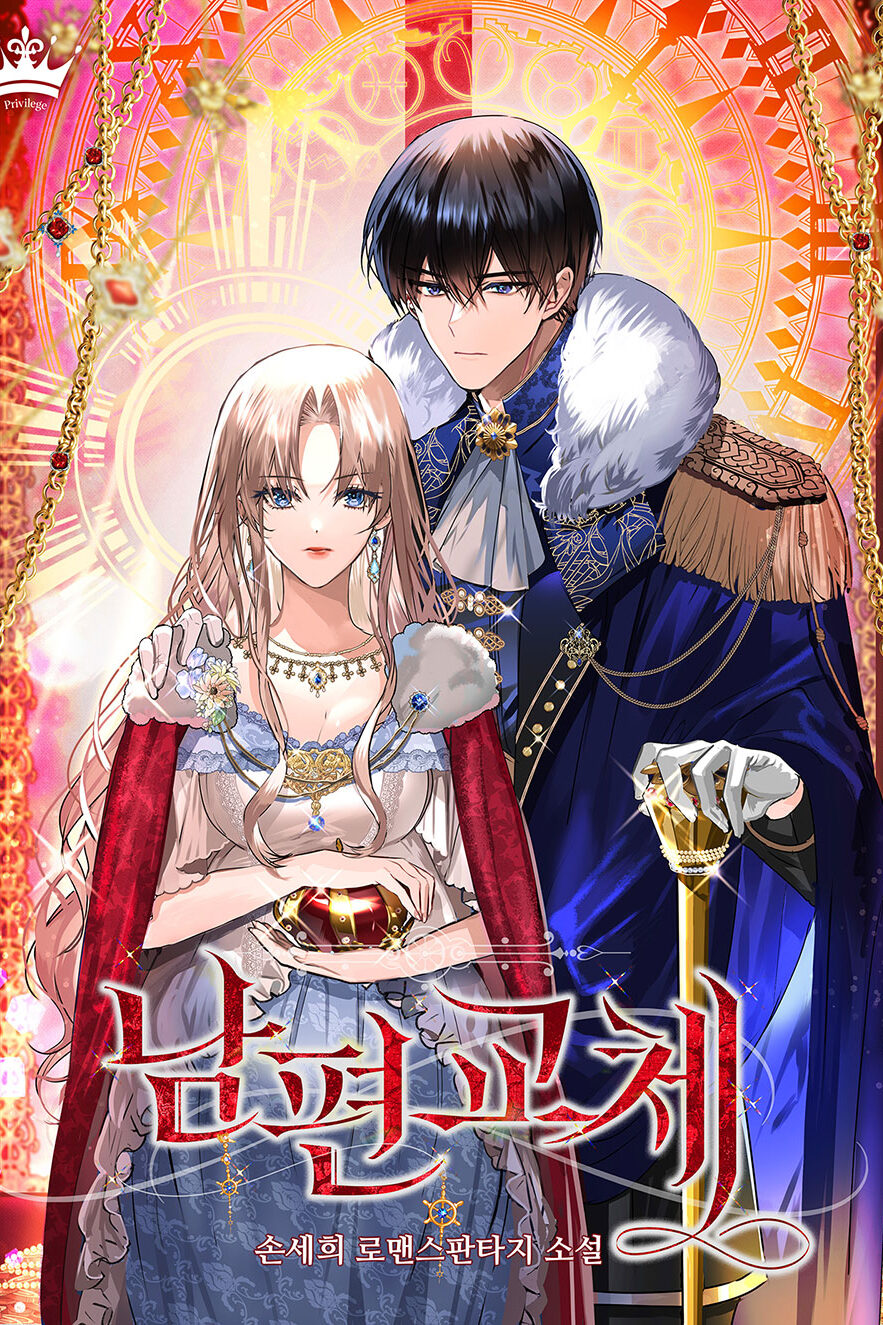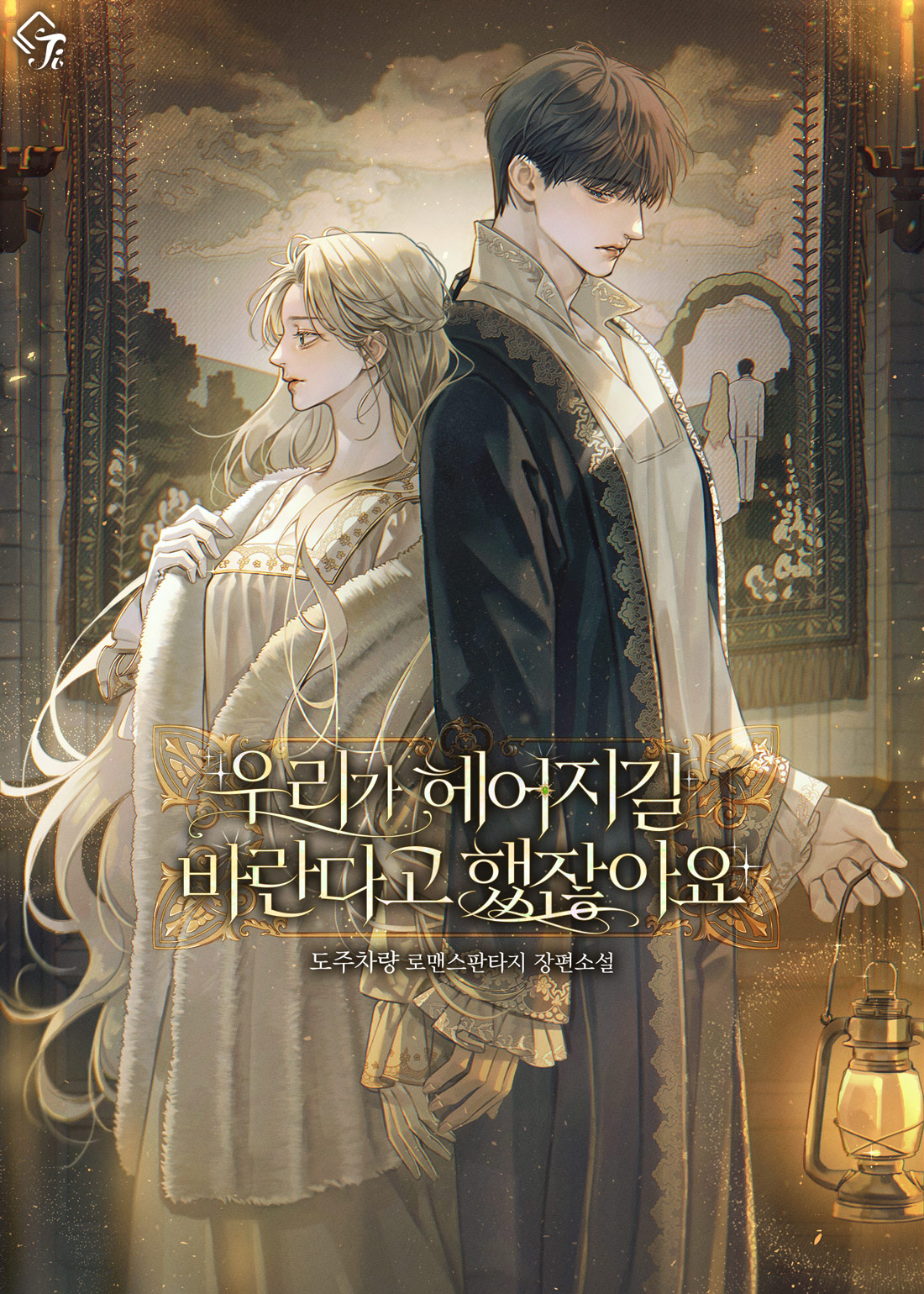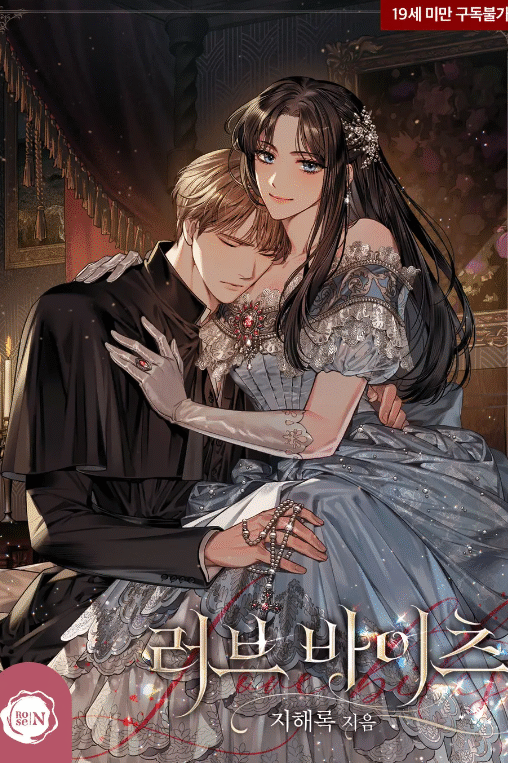Chapter 9
“Ann.”
It was just after Ingrid had left to attend the reading at the Grand Salon. The deep, stern voice echoed in her ears. Before turning around, Ann looked at the man who had suddenly grabbed her shoulder roughly. His hand, gripping her urgently, was as rude as it was forceful.
“You…”
“Don’t get angry.”
The distorted expression on his face was almost pitiful. Strangely, even when he was angry, Lennox had a childlike quality. Maybe others didn’t see it. Perhaps it was only visible to Ann. Lennox had many such qualities—only with her. He was unusually soft and reckless with her. But…
‘So what does it matter?’
It was futile. No matter how special Lennox thought he was to her, so what? What did that change for Ann? She never longed for his special feelings. Lennox was someone far beyond her—someone for whom the word “undeserving” didn’t even feel like enough. That’s why she had never coveted it. Love was different from a desire to possess.
“Are you going to stay angry?”
“The villa can be visited anytime.”
The Sapphoras estate was a place they had visited every summer since they began living together. Ann thought of the peaceful, secluded mansion in Sapphoras.
Sapphoras had long been known as a retreat for the upper class. The mansion was one of the royal family’s private villas, set in a pastoral and beautiful location with a small farm and a working ranch. The cliffs of the coastline and the deep blue forests—everything about it was breathtaking.
Ann had always liked it there. In truth, any place she went with Lennox had been enjoyable, because…
‘Because I went with you, Lennox…’
Ann reflected bitterly on it.
Suddenly, a bold voice broke her thoughts.
“Are you meeting another man?”
The gaze that had briefly touched her shoulder turned back to him. Ann narrowed her eyes. The hand gripping her shoulder tightened. Now, the once rough touch was almost painful.
“Do you like men that much?”
“…That’s an excessive remark.”
Ann grimaced. No matter how insignificant she might be, she had not acted in a way that deserved such a comment. She stared at the man with fiery eyes. His expression was so grim, it seemed as if he had become disgusted with himself after mentioning “men.”
“Is that not true? You’re acting like a madwoman, jumping from man to man…”
“What’s wrong with meeting someone? I’m of marrying age, you know.”
No, it wasn’t just the right age to marry. Lennox was not the only one; Ann had long passed the age where most young women in noble families married. She was already twenty-six. Most noble daughters married between the ages of seventeen and twenty, and by twenty-three at the latest.
But such late marriages usually meant there was something unusual going on with the family. For someone like Ann, unmarried and living alone, it wasn’t easy. Of course, as a lady-in-waiting to the royal family, marriage was complicated. Marriage for servants was up to the discretion of their masters.
Still, Ingrid had always been concerned about Ann’s marriage.
‘The problem was Lennox.’
Ann bit her lip. Lennox, who had just asked if she liked men, slowly opened his mouth.
“…What’s the problem?”
“What are you saying?”
Fatigue washed over her. Lennox blinked rapidly, his grip on her shoulder loosening. Ann stared at him for a moment, then tried to pull away. Lennox grabbed her again, his hands like a net, pressing her against the wall.
Ann gasped, closing her eyes, but thankfully, his hand caught her head before her skull hit the wall. Trembling, Ann glared at him.
“You said you hated me.”
“What? What are you talking about?”
Lennox was serious. Ann blinked in confusion. He was definitely referring to the moment before. She found it uncomfortable to have him dig into such memories. Her breath hitched, and her face flushed. Seeing her like that, Lennox’s expression twisted.
“You clearly said you hated me.”
“Your Majesty.”
“Was I really that awful?”
Despite Ann’s desperate prayers, Rihanna could not rise. Ann, for her mother’s sake, began selling flowers. It was something poor children often did. Boys sold newspapers, and girls sold flowers.
As they grew older, boys worked in factories, and girls became maids. Ann picked flowers from the flower shop and sold them little by little. One flower cost 1 dant, and she split the money with the shopkeeper based on how many flowers she sold.
Sometimes she sold as many as ten flowers, sometimes only three. When she sold ten, she earned 4 dants. Even after working all month, it was still difficult to earn enough for her mother’s medicine. When Ann was away from home, Lila would often come to help care for her mother, but as time passed, even that became less frequent.
The responsibility of caring for her mother was left entirely to Ann. But it didn’t matter to her. As long as her mother stayed healthy… she would do anything. That winter was unbearably harsh, but despite it all, her mother survived the season.
When spring came, her mother’s health improved slightly. And that spring, her mother taught Ann how to embroider.
“Good job, my dear. My daughter is more talented than I am!”
Rihanna watched her young hands as she stitched, then gently patted Ann’s head. Indeed, her fingers were nimble and quick. Rihanna smiled warmly, patting her daughter’s back. Ann smiled back and replied that her mother was much better at it.
Rihanna’s eyes became red-rimmed.
‘She won’t live long. Maybe it’s better for Ann if I leave this world early.’
Rihanna looked at her daughter’s small hands. This little girl was out selling flowers for her mother, wasn’t she? Her gaze moved to the bundle of medicinal herbs on the table. The cost of medicine, living expenses… Ann was her only support. Rihanna thought that if this was the life she would live, it would be better to die than to keep going.
“I’m sorry, Ann…”
“Don’t cry, Mom. I’ll work harder. I’ll work even harder so you can get better.”
Ann swallowed her tears and said firmly. Rihanna silently wiped away a tear. Ann clung to her mother’s embrace. Time passed. God seemed to listen more to Rihanna’s prayers than Ann’s. Rihanna passed away the year Ann turned eight. She left this world to join the father she had longed for, Pierre.
Ann buried her mother beside her father, at the graveyard where Pierre lay. Dressed in black mourning clothes, she gazed at the cold earth. It was then that someone tapped her shoulder. Ann looked up at the woman. The woman’s face was harsh, without even a trace of kindness.
“Are you Anna?”
Pierre had three half-sisters. The eldest, Rosy, the second, Dora, and the youngest, Paola. As the word “half” suggests, their mother was not the same as Pierre’s mother. When their mother passed away early, their father, George, remarried and took Pierre’s mother as his wife.
Pierre’s mother was not much older than the sisters. She was three years older than Rosy, the eldest. She had married their father, a man around her own father’s age, for a few coins, having been the eldest daughter in a poor family.
Though she was strong in character, she didn’t lose to her tough stepdaughters. It was no surprise they didn’t get along. Her father solved family disputes by marrying off each daughter.
When Pierre was seven, even the youngest, Paola, had been married off, and the family became quiet. However, Pierre’s relationship with his half-sisters never truly healed.
“Your name isn’t Anna, it’s Agnes,” Dora corrected, speaking to Paola, who had called Ann “Anna.” She added that “Anna” was Rosy’s eldest daughter. Ann looked at them, feeling small. Dora casually tossed out a remark.
“Doesn’t have Pierre’s face.”
“Do you remember him?”
“Of course. I saw him when our father passed away.”
“When was that, exactly?”
Paola muttered, flicking the ash from her cigarette. Paola had gotten married not long before Ann’s grandfather—who was also the father of the sisters—died. Ann’s grandmother had cried for a while, then remarried a man her own age. When Pierre got married, she, too, passed away from tuberculosis.
Ann stared at her aunts, whispering about her. The only one who seemed to remember Pierre’s face was Dora, the second sister. Dora had been the only one to attend the funeral when George passed away.
However, it wasn’t because of any special attachment. Dora had gone as the representative of the sisters to meet with a lawyer about the inheritance. The small house and farmland Pierre had inherited were relatively significant assets, so they had to discuss the division of them.
Dora had sold the small land and house, and the remaining money was evenly divided between the three sisters and Pierre. And Ann…
“What should we do with her?”
A rough, deep voice came from inside the dark carriage. The cramped space was about to burst, with the large, burly sisters taking up most of it. Because of this, Ann had to squeeze herself into the corner, feeling like discarded debris.
The eldest, Rosy, seemed indifferent, just as she had at their grandfather’s funeral, while Paola looked at Ann as though she were a nuisance.
-
KOFI : https://ko-fi.com/lyra835656 Join our discord for more updates https://discord.gg/Jb956qEQ
View all posts





